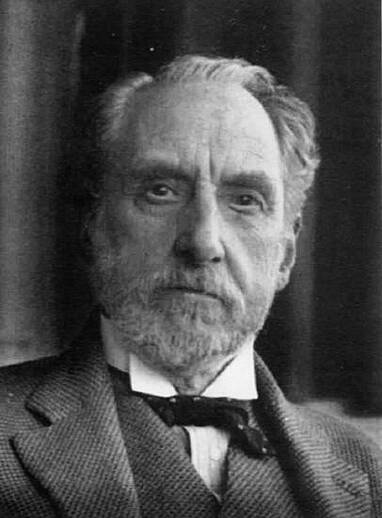James Kelly, class 1872
In Memoriam

-
Just after we had gone to press last June, there passed to his eternal reward the doyen of the Past in the person of James Kelly. Born in September, 1856, he was within a few months of celebrating his ninetieth birthday.
Though an outstanding personality in many respects, James Kelly has one very special claim on the attention of the chronicler—his intimate family connection with Castleknock from the time of its foundation. From the day the College first opened its doors in the autumn of 1835, there was scarcely a year in which the name of one or other of his immediate relations did not appear on the roll; a succession that remains unbroken even to the present time.
James Kelly's uncle, Tom Kelly, was amongst the first pupils to enter the College. He afterwards joined the Community and was a member of the Staff when he died in 1851 at the early age of 39. His remains were laid to rest in the College cemetery on the Hill.
It was by reason of his uncle's association with Castleknock that Jim and his elder brother Tom, came in 1868. Jim remained until 1872 and left behind his younger brother Bill, who continued until 1875. Two of Jim's first cousins, James and Thomas Kelly were contemporaries. Both became priests, the former won renown in the missionary fields in South Africa. An account of his remarkable career and his achievement in spreading the Gospel in Rodesboch is contained in an earlier issue of the Chronicle. The younger brother laboured in Canada after leaving here in 1877. Then Michael Whitty, afterwards Lt. Colonel Whitty, R.A.M.C. further extended the succession to 1881. In 1896, Jim's two nephews, Jack and Billy Hickey, came along and were followed by three other brothers and Jack Rowe, another nephew. Their term in the College extended to 1908, when a succession of Whitty's, Cleary's and another nephew Willie Kelly, a son of Jim's brother Tom, carried on the tradition to 1916. In the latter year, Jim's son Paddy, arrived to be followed by his brothers, Joe and Billy (1916-1920). In 1917 Fr. Hickey joined the Community Staff and from that date until the present day we have had a continuous succession of Dowley's, all of whom are grand-nephews of the grand old man.
There would appear to be two short gaps in the succession, but these might possibly be reduced or even bridged were fuller and more accurate information available.
After leaving Castleknock, Jim joined his father in the family business on the Quay in Waterford, which he carried on after the death of his father until 1897 when he came to Dublin and took over from his widowed sister, Mrs. Rowe, the drapery establishment under the name of Rowe & Co., in Earl Street. His premises, was, like so many others in the vicinity, burned-out in Easter Week, 1916. In spite of seemingly insuperable difficulties he rebuilt and modernised the premises and developed the very successful business from which when he was over four score years he retired and handed-over to his two sons Paddy and Billy. The latter have since carried on and are to-day as respected by the business fraternity of the City for their integrity and business acumen as their father before them.
After his retirement " to while away the time " he wrote an account of his " Impressions and Recollections " of those early days in Castleknock, under the pseudonym, " Octavius." These notes tellingly epitomize his affectionate regard for his Alma Mater and, incidently, throw into relief the finer qualities of his mind and character. In one of the closing pages he writes :—
I doubt if any school in Ireland gave a better religious training than Castleknock, or if in any other the assimilation of the precepts by the students was more easily or permanently effected. And in proportion to the comparative numbers supplied by the different educational houses, it can account for the production of as many good citizens in Ireland or elsewhere as any of its competitors.
What Jim Kelly most admired in the teaching and tradition of Castleknock he certainly practised in his own life, which was a shining example to his family and those who had the privilege of associating with him. He was a great Catholic, a deeply religious man and a model citizen. Probably the greatest joy of his life was the fact that two of his children entered the religious life. His eldest daughter joined the Dominican Convent, Cabra and his second son, Joe, became a member of the Society of Jesus.
Although close on ninety when he died, he retained through all the years the fresh boyish quality which was so characteristic of his youth. His good humour was infectious and his carefree laughter good to hear.
I think the thing most noticeable on calling at his home where he lay still in death was the absence of his laughter, but when a few minutes later one beheld the almost seraphic smile on the stilled features, it seemed as though he was enjoying a foretaste of what assuredly he was even then experiencing—the joy of the Elect.
With his family we mourn his loss.
